Choose well
How to choose your girth ?
29 March 2022

Choose well
29 March 2022

The girth is an essential accessory to the saddle. Beyond maintaining the saddle on the horse’s back, the girth has a major role in its good balance. It sits behind your horse’s elbow and wraps around its belly. It is therefore in contact with different parts: the sternum, the ribs, the thoracic vertebrae and the different muscles that compose them. The strap has a direct impact on the movement. A bad riding girth could hamper your horse’s locomotion.
It is also essential that your equipment corresponds to your horse’s morphology, and its sensitivity. Indeed, some horses are more or less reactive during strapping. This is why we strive to create girths ensuring the best comfort for your equine.
Knowing that there are many models to choose from depending on your saddle and/or the discipline you practise, we offer you an overview of the different girths.
There are two types of girth: short and long. Depending on your make of riding saddle, you won’t need the same girth.
Short girths are made for monoflap saddles that are attached much lower down than classic saddles. As such, short girths are mainly used for dressage and cross saddles.
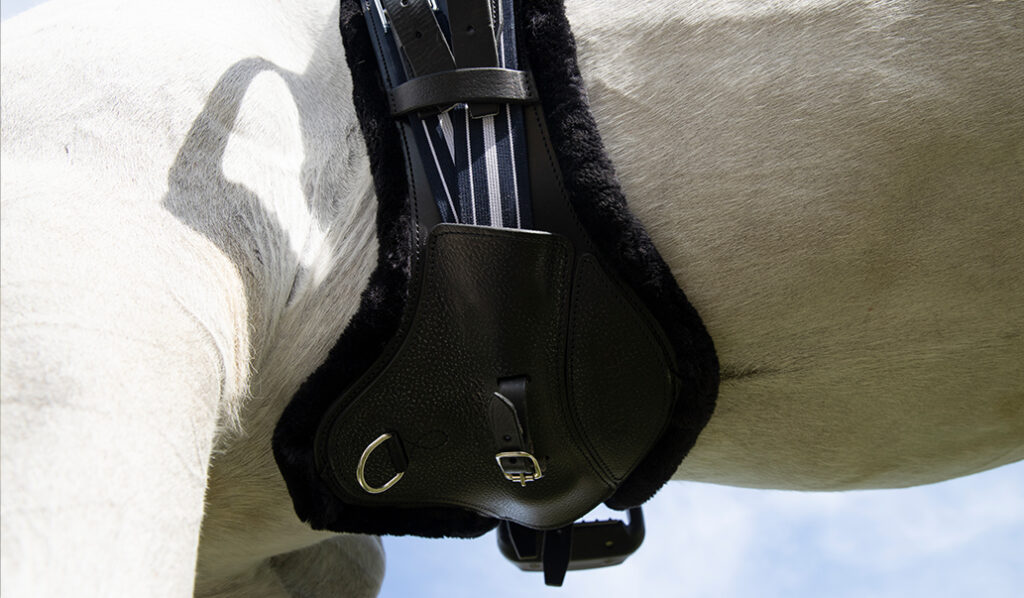
Long girths are for double flap saddles, which are mainly used for show jumping saddles. The girth is strapped to the horse under its leg, behind the flap. These are the most conventional types of girth.
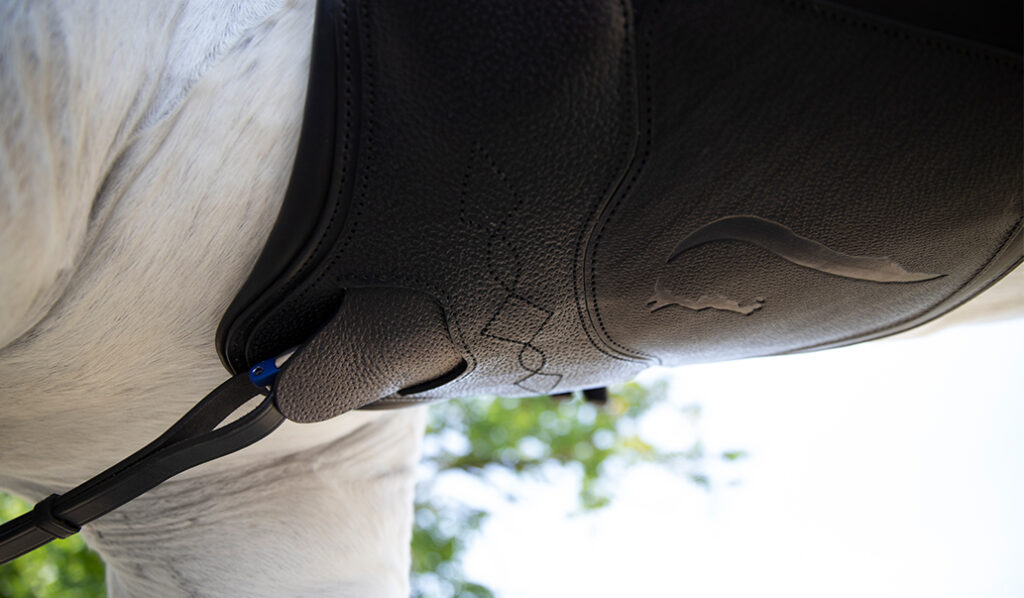
You must measure the height of your horse’s withers to select the size of girth in centimetres. Click here to view our matching guide for short and long girths.
| Girth’s type | Height at withers (hands) | Girth’s size (inch) |
| Long girth | 13’1 13’3 14’1 14’3 15’1 15’3 16’1 16’3 17’1 | 42″ 44″ 46″ 48″ 50″ 52″ 54″ 56″ 58″ |
| Short girth | 13’3-14’3 14’3-15’3 15’3-16’3 16’3-17’3 | 16″ 20″ 24″ 28″ |
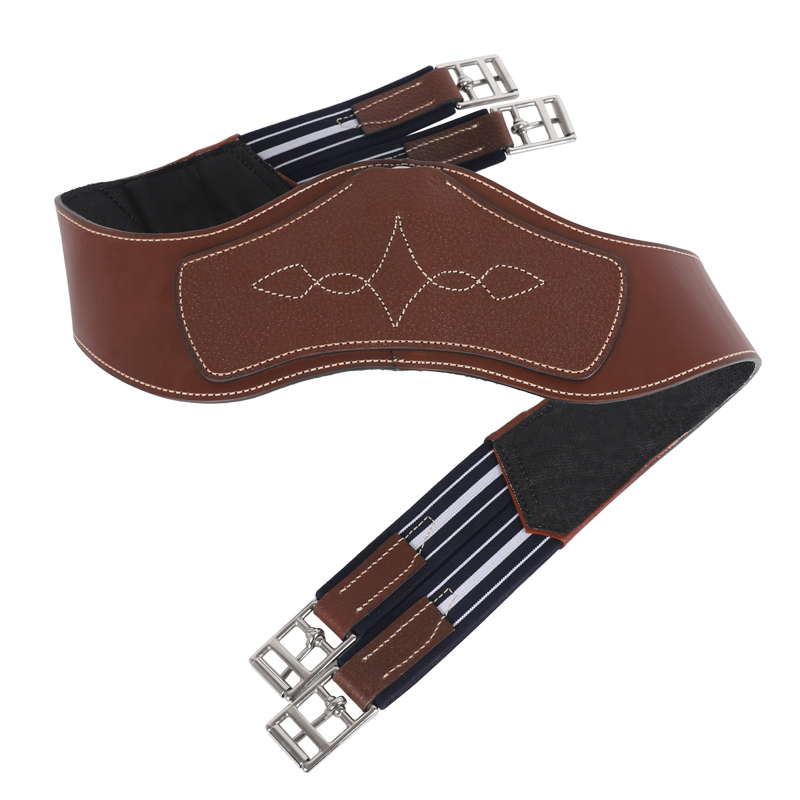
Straight girths suit horses with no areas of sensitive skin or that tend to get injured when fitting the girth. It is very narrow and suits certain riding disciplines. The Hunter, for example, requires the lightest and simplest equipment, hence the need for a straight girth.
Straight girths come in short and long versions, with or without rings to attach the reins.
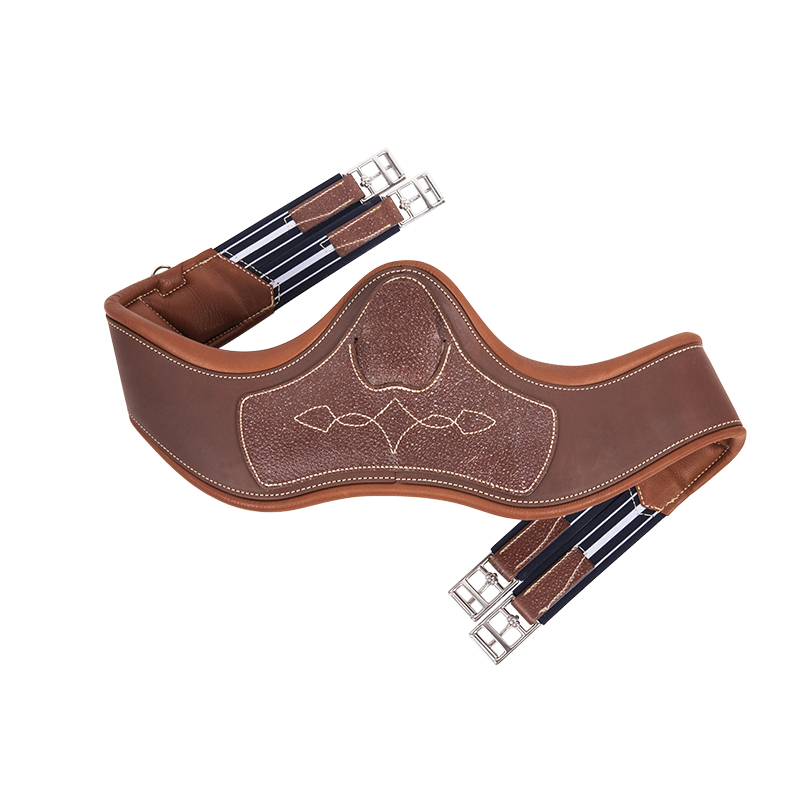
Anatomic girths hug the horse’s curves and better distribute pressure from the girth straps. They are shaped to relieve the horse’s shoulders and elbows. These girths give the horse more room, for greater flexibility and shoulder movement. They also prevent injuries from folds and rubbing on the skin. Anatomic girths are ideal for frequent use.
Anatomic girths also come in short and long versions.
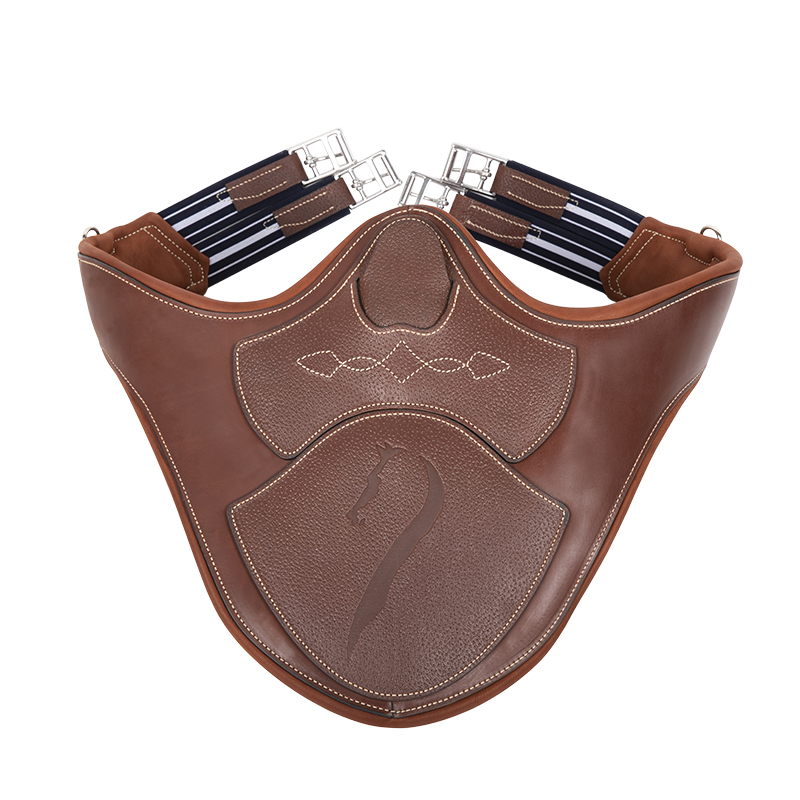
Belly guard girths are mainly used for riding disciplines that require the horse to fold its front legs. They are especially needed for cross-country events, where horses are fitted with crampons and can seriously injure their abdomens. The width of the girth protects from hoof impacts. Our belly guard girths also have an anatomic shape, providing more space for the elbow and shoulder.
Belly guard girths come in short and long versions.

Leather unquestionably offers the best performance. It’s hypoallergenic and provides unparalleled comfort for the horse. Even for the most sensitive of skins, the risk of irritation on contact with leather is virtually zero.
Leather is also a guarantee of quality and long life. Well maintained, it can retain all its properties for decades. Our girths are a careful combination of soft and grained leather. Grained leather is thicker and more rigid, providing robustness and better shock absorption.
Sheepskin girths protect horses with sensitive skin from frictions that may be caused by the material. Hypoallergenic and with a breathable lining, the synthetic sheep we use is suitable for all horses. Equipped with a Velcro lining, it is also very easy to maintain.
[Our advices to look after your sheepsking horse tack]
Our sheepskin girths come in short or long version, but also in belly guard model.
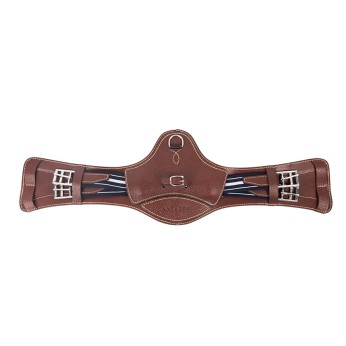
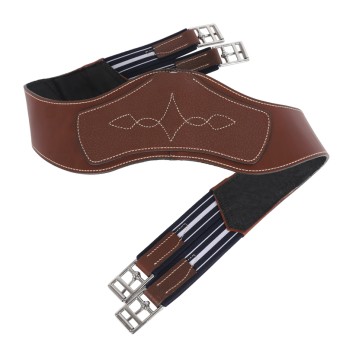
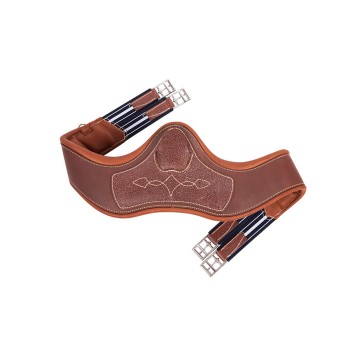
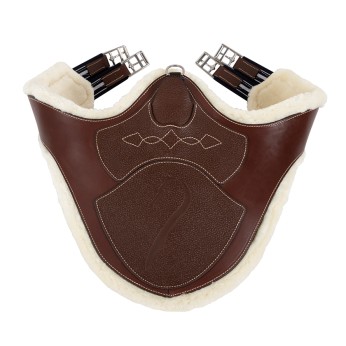
330,00€
The girth’s synthetic sheepskin lining combines comfort and support and prevents chafing. The girth must be paired with a synthetic sheepskin lining(sold separately) for proper use. It also features an Easy Clip fastening system covered with a leather flap to prevent any risk of snagging.